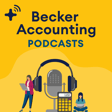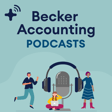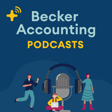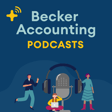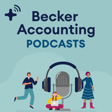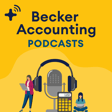
Tax News Now Ep. 2 - Tax Topics with Brandon Lagarde
Mark Gallegos, Tax Partner at Porte Brown, welcomes his guest Brandon Lagarde, Tax Services Partner at Eisner Advisory Group, to discuss navigating the challenges and opportunities in the tax profession. Brandon shares his journey, insights, and strategies for thriving during tax season, emphasizing the importance of client communication, education, and managing expectations. He highlights the evolving nature of tax laws, the value of staying informed, and the need for professionals to balance work with personal well-being. The conversation also touches on the complexities of tax law, the importance of adaptability, and the rewarding aspects of being a trusted advisor in the field.
Earn CPE by listening to this podcast through a Becker Prime CPE subscription.
Listen to this episode through your Becker LMS platform to complete practice questions, pass the final exam, and earn CPE credit.
Already a Becker Prime CPE customer? Login here.
Have access to Becker CPE through your employer? Earn CPE credit for this podcast however you consume Becker CPE, either through your company’s LMS or via the Becker platform. Not sure where to log in? Check with your CPE admin.
Learn more about CPE Podcasts from Becker: https://www.becker.com/cpe/becker-podcasts
